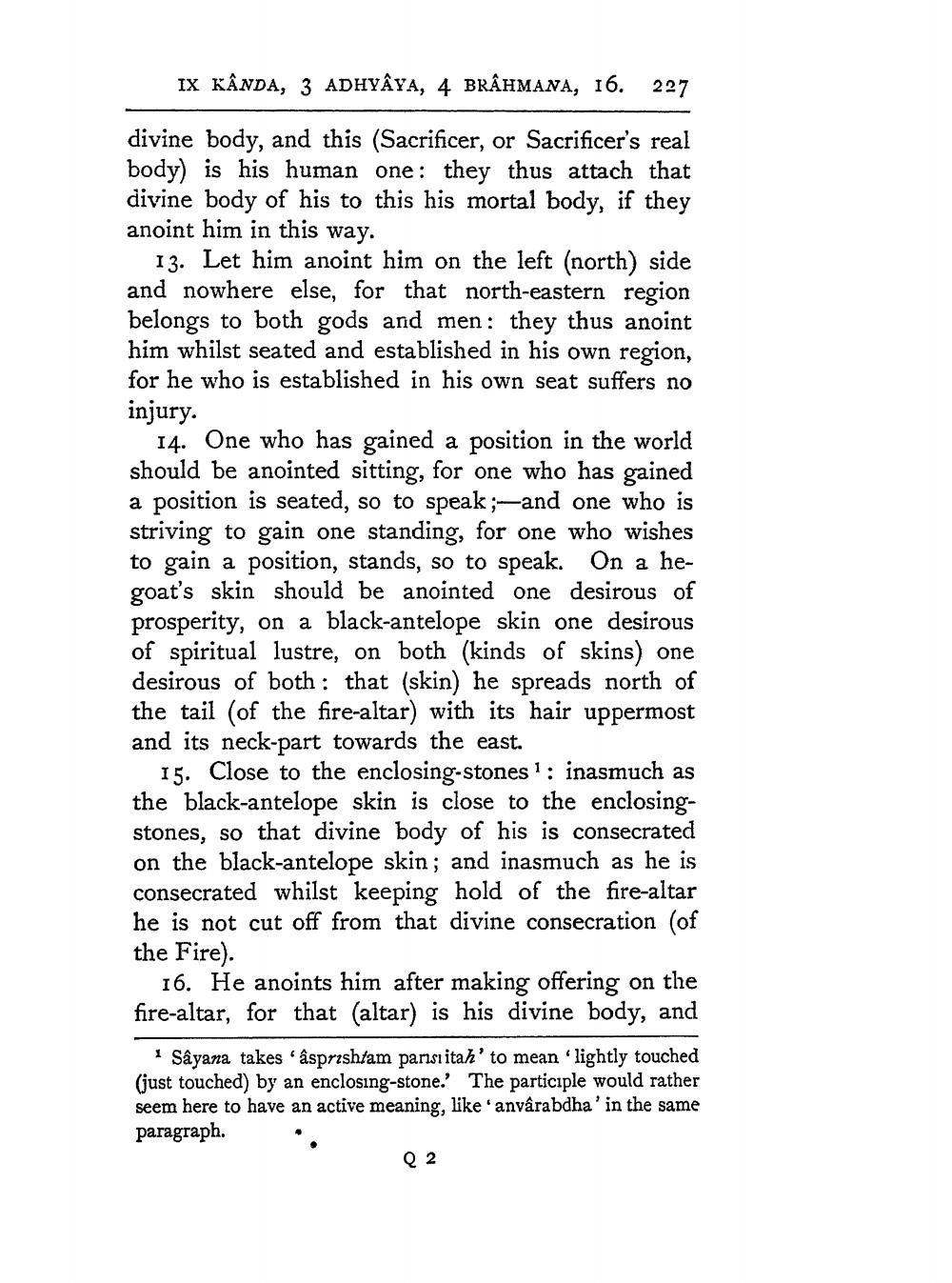________________
IX KÂNDA, 3 ADHYAYA, 4 BRAHMANA, 16. 227
divine body, and this (Sacrificer, or Sacrificer's real body) is his human one: they thus attach that divine body of his to this his mortal body, if they anoint him in this way.
13. Let him anoint him on the left (north) side and nowhere else, for that north-eastern region belongs to both gods and men: they thus anoint him whilst seated and established in his own region, for he who is established in his own seat suffers no injury.
14. One who has gained a position in the world should be anointed sitting, for one who has gained a position is seated, so to speak;—and one who is striving to gain one standing, for one who wishes to gain a position, stands, so to speak. On a hegoat's skin should be anointed one desirous of prosperity, on a black-antelope skin one desirous of spiritual lustre, on both (kinds of skins) one desirous of both : that (skin) he spreads north of the tail (of the fire-altar) with its hair uppermost and its neck-part towards the east.
15. Close to the enclosing-stones 1: inasmuch as the black-antelope skin is close to the enclosingstones, so that divine body of his is consecrated on the black-antelope skin; and inasmuch as he is consecrated whilst keeping hold of the fire-altar he is not cut off from that divine consecration (of the Fire).
16. He anoints him after making offering on the fire-altar, for that (altar) is his divine body, and
1 Sâyana takes 'asprishtam parisiitah' to mean 'lightly touched (just touched) by an enclosing-stone.' The participle would rather seem here to have an active meaning, like anvârabdha' in the same paragraph.
Q 2




